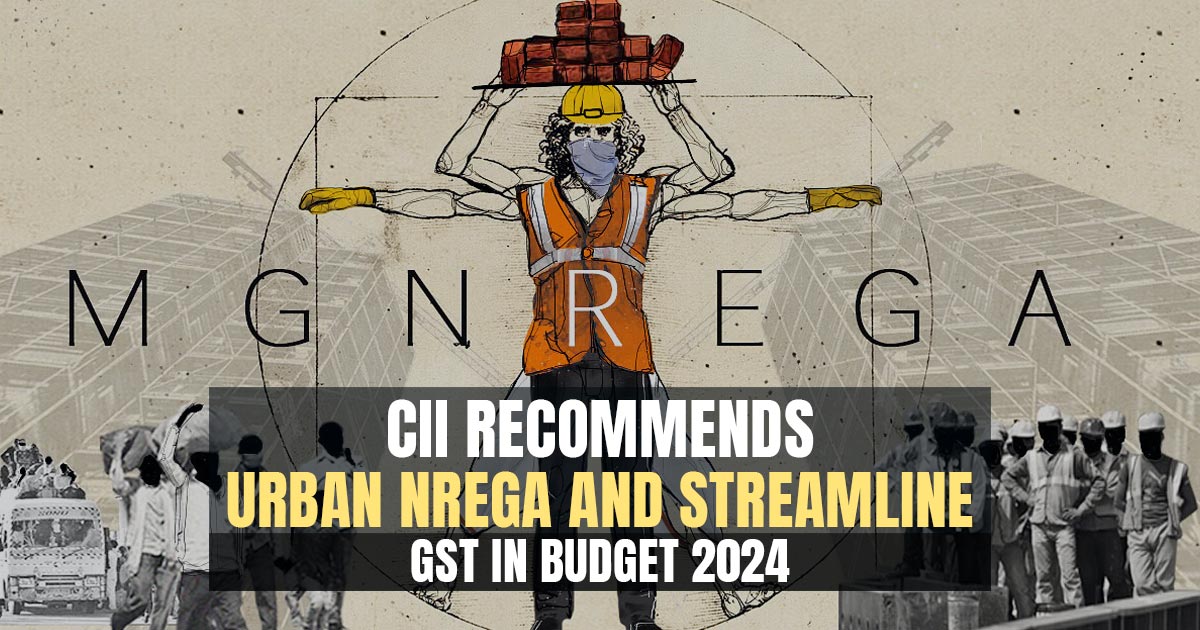
The Confederation of Indian Industries (CII) urged Finance Minister Nirmala Sitharaman on Wednesday to target a 20% increase in the capital expenditure outlay for the upcoming financial year, reaching Rs 12 lakh crore in her forthcoming budget.
The industry body also recommended a revision of beneficiary criteria for the free food scheme and the initiation of pilot projects to assess an urban employment guarantee scheme modelled after the Mahatma Gandhi National Rural Employment Guarantee Act (NREGA).
In its budget recommendations summary, the CII emphasized the need to accelerate the privatization of public sector units (PSUs), express a commitment to simplify the Goods and Services Tax (GST) to a three-rate structure, introduce measures to promote affordable housing, target a fiscal deficit of 5.4% in FY25, and demonstrate an intention to establish a new Ministry of Investment.
As part of its suggestions, the CII proposed the creation of an independent Ministry for Investment, serving as a central point of contact to facilitate both domestic and foreign private investments, and to assist Indian investors in international ventures. Sitharaman is scheduled to present the interim budget for the next financial year (FY25) on February 1.
The CII advocated for linking the exemption limit and rebate of personal income tax with inflation. It called for an extension of the interest subvention scheme for low-cost housing to cover a total housing cost of up to Rs 35 lakh, an increase from the current Rs 25 lakh limit.
The industry body also emphasized the need for augmented allocations for flagship schemes like the Pradhan Mantri Awas Yojana, Pradhan Mantri Gram Sadak Yojana, and the National Rural Employment Guarantee Scheme.
In its report, the CII recommended the launch of a National Mission for Advanced Manufacturing to enhance quality and productivity in manufacturing. This mission would fortify the ecosystem for the development of a technologically advanced manufacturing industry and expedite the adoption of transformative technologies.
Furthermore, the CII called for the expansion of the Production-linked Incentive Scheme (PLI) to labour-intensive sectors such as apparel, toys, and footwear to stimulate employment generation. It also suggested extending the PLI to sectors with substantial imports but domestic capability, including capital goods and chemicals, to decrease import dependence.
In a report shared by Chief Economist Madan Sabnavis, the Bank of Baroda (BoB) outlined its expectations for the upcoming budget 2024, anticipating the government to adhere to its fiscal consolidation path without compromising the quality of expenditure.
Given the impact of a weaker monsoon and challenges observed during the Rabi sowing season, the emphasis will be on bolstering rural growth. To attain fiscal consolidation objectives while sustaining spending momentum, it is unlikely that there will be opportunities for tax reductions.








